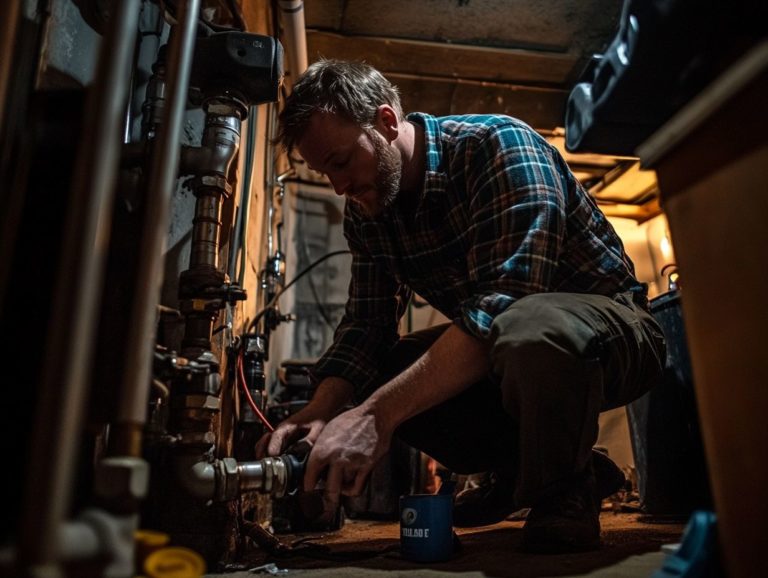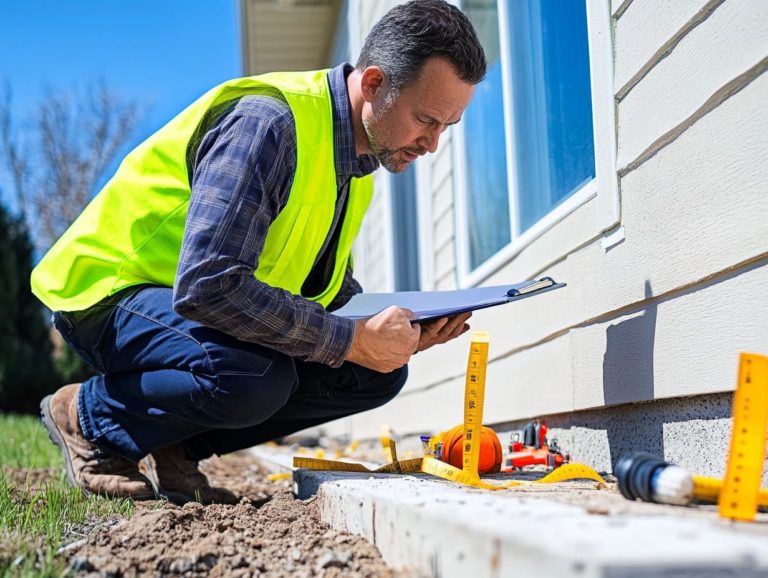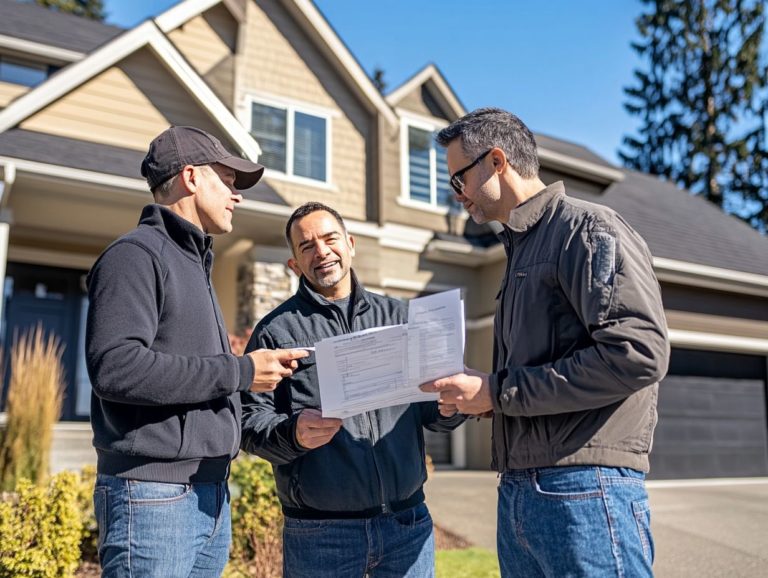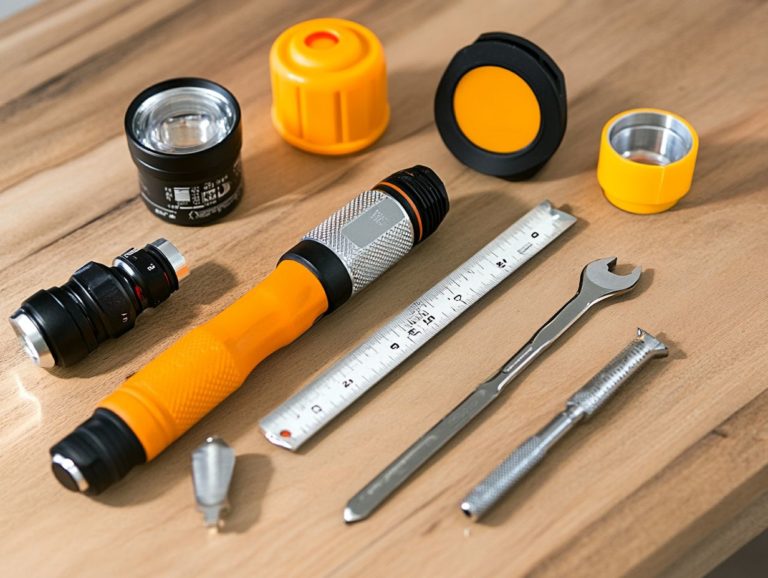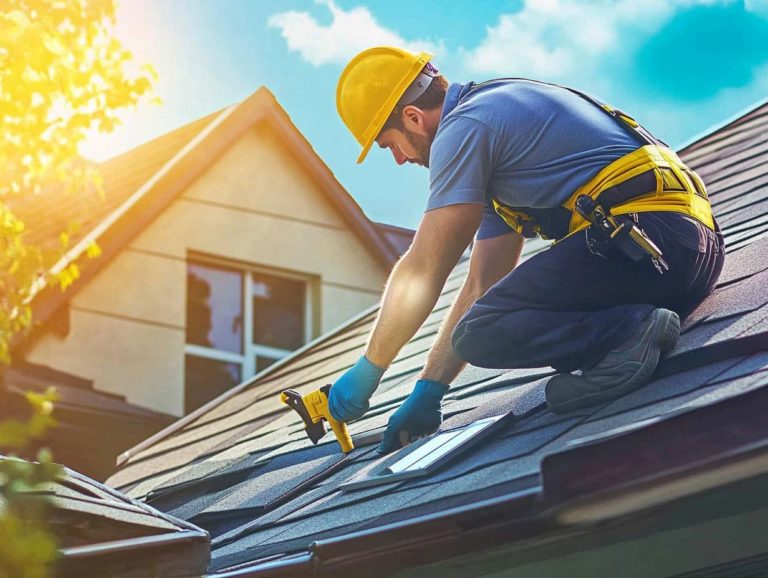Understanding the Home Inspection Process for Sellers
Selling your home can be an exciting adventure! However, it comes with its own unique set of challenges.
One essential step in this journey is the home inspection. Whether you re a first-time seller or a seasoned homeowner, understanding what a home inspection involves is crucial.
This guide will clarify the definition and purpose of home inspections, emphasize their significance for sellers, and provide practical preparation tips.
It will also detail what to expect during the inspection process and how to tackle any issues that may arise, ensuring you re fully prepared to conclude your sale with confidence.
Contents
- Key Takeaways:
- What is a Home Inspection?
- Why Home Inspections are Important for Sellers
- Preparing for a Home Inspection
- The Home Inspection Process
- Addressing Issues Found During the Inspection
- Finalizing the Sale After the Inspection
- Frequently Asked Questions
- What is the purpose of a home inspection for sellers?
- When should sellers schedule a home inspection?
- Who pays for the home inspection in the selling process?
- What should sellers do to prepare for a home inspection?
- Can sellers be present during the home inspection?
- What happens if the home inspection reveals issues?
Key Takeaways:
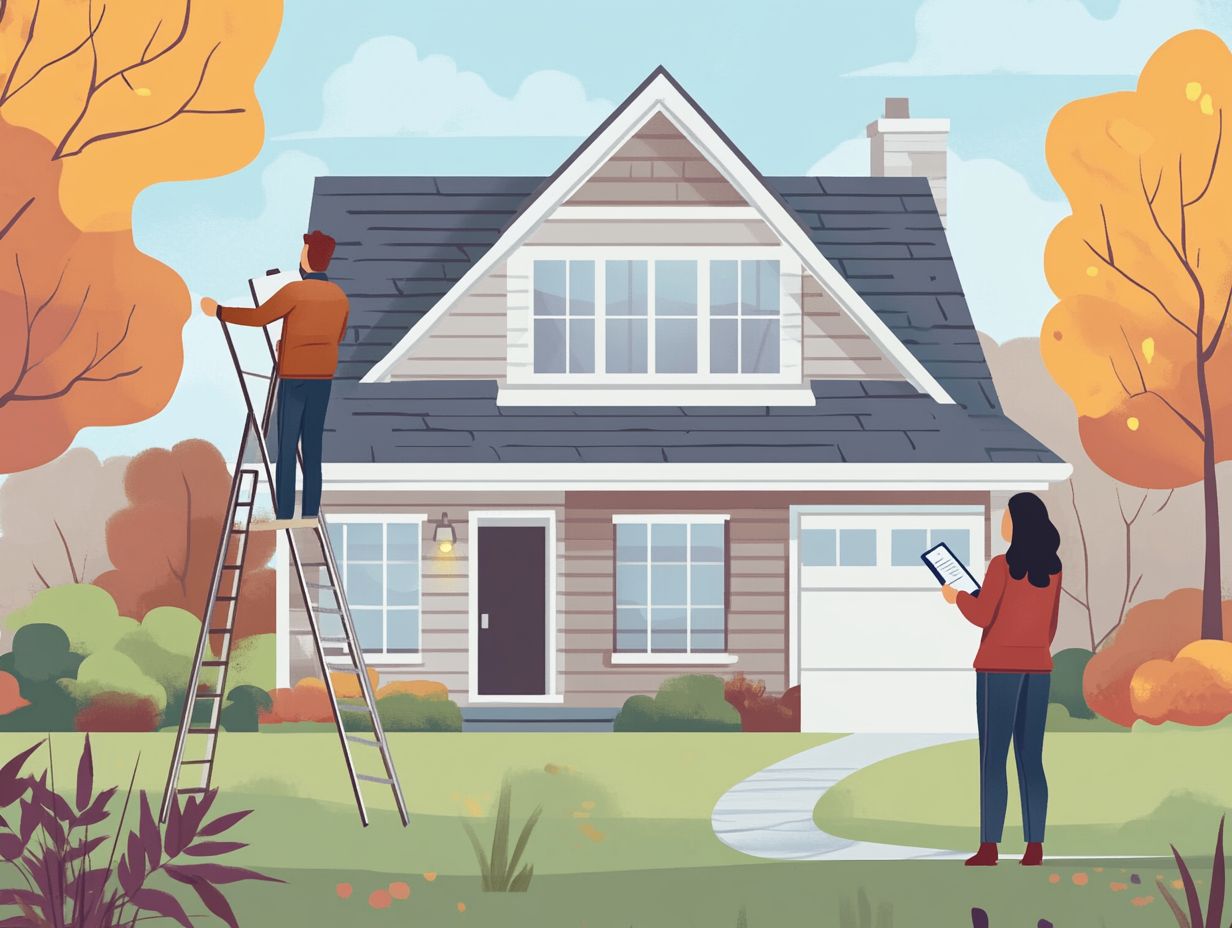
A home inspection is a thorough evaluation of a property’s condition and is crucial for sellers to understand before putting their house on the market. Conducting a home inspection can benefit sellers by identifying potential issues early on, allowing them to make necessary repairs, ultimately leading to a smoother sale process. To better navigate this, sellers can refer to understanding the home inspection process for sellers and should also declutter, make necessary repairs, and gather important documents to present to the inspector.
What is a Home Inspection?
A home inspection represents a meticulous evaluation of a property’s condition, performed by a qualified home inspector, typically prior to a sale or purchase. This process serves to uncover potential issues such as structural problems, safety concerns, and necessary repairs, helping everyone understand the property’s true condition.
A home inspection empowers you with critical insights that enable knowledge-based decision-making in the real estate landscape.
Definition and Purpose
A home inspection involves a professional assessment of a property’s condition, focusing on key systems like plumbing, electrical setups, and structural integrity.
This evaluation is crucial in real estate transactions, spotlighting critical safety concerns and uncovering potential defects that could impact the property’s value.
Both sellers and buyers stand to gain from the ensuing inspection report, which brings much-needed transparency and empowers you to make knowledge-based decisions.
For sellers, it identifies repair areas to address before listing, boosting the property’s overall appeal. On the flip side, buyers gain insight into the property’s condition, enabling them to negotiate more effectively and prioritize essential investments.
This proactive approach leads to smoother transactions and happier sellers and buyers.
Why Home Inspections are Important for Sellers
Home inspections are essential for you as a seller, offering a clear roadmap to understand the home inspection process and your property’s condition. This insight enables effective home repairs and streamlines the entire home sale process.
By tackling issues upfront, you can navigate negotiations with potential buyers more adeptly, using your findings to your advantage in light of current market trends.
Benefits of Conducting a Home Inspection
Conducting a home inspection provides you with several advantages as a seller, allowing you to identify property defects early and enhance the home’s aesthetics. This proactive approach is crucial, as outlined in understanding the importance of home inspections, and can positively impact its value.
By addressing potential issues before listing, you build buyer trust and accelerate the sale process significantly. A well-maintained home instills confidence in prospective buyers, enabling them to envision moving in without the stress of hidden repairs.
This proactive strategy often results in smoother negotiations, giving you the opportunity to command a higher selling price. By presenting a home that exceeds market expectations, you can distinguish yourself in a competitive landscape, attract more interested buyers, and ultimately enjoy a more favorable selling experience.
Preparing for a Home Inspection
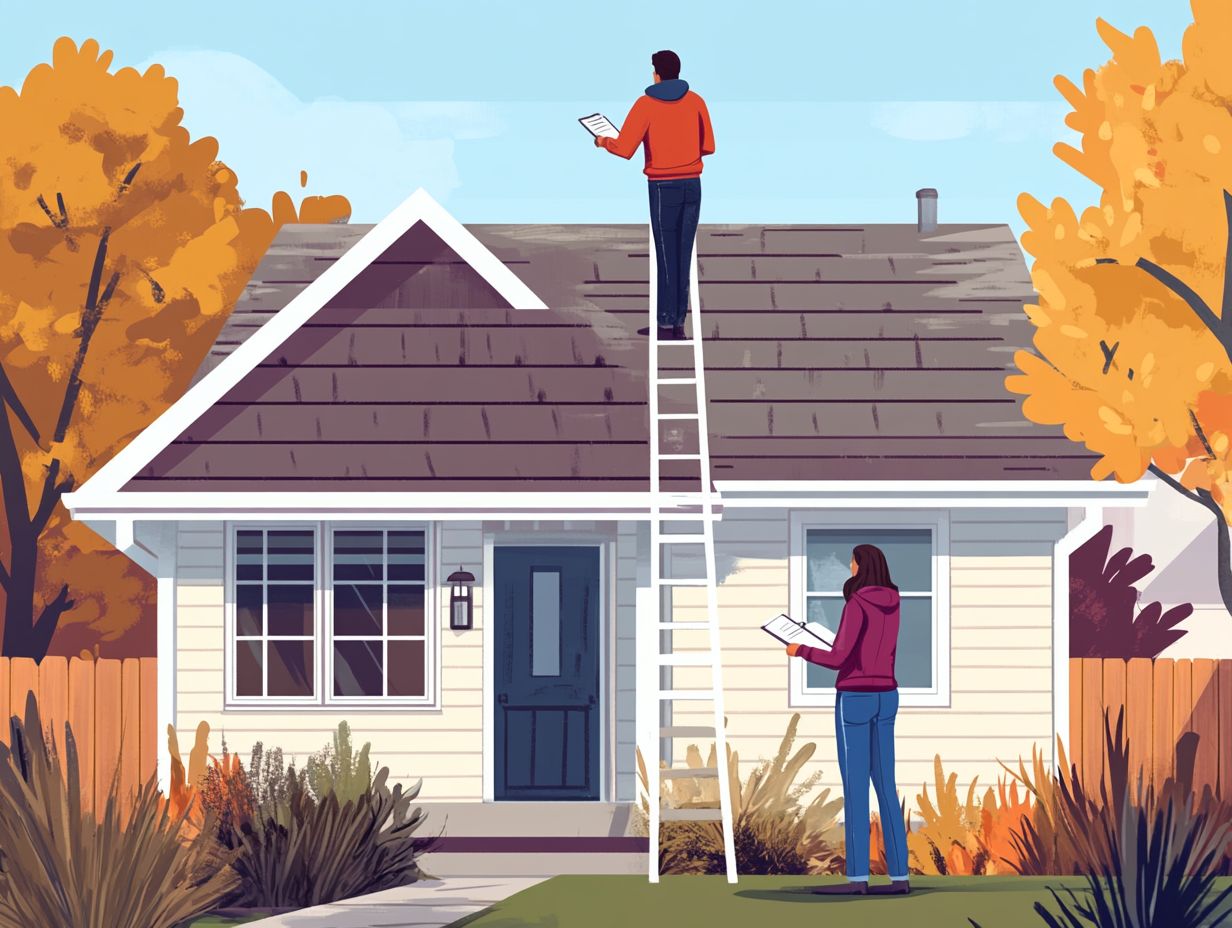
Preparing for a home inspection requires a thoughtful approach to ensure a seamless evaluation process. It s essential for you to review an inspection checklist meticulously and conduct any necessary maintenance around your home.
By addressing potential repairs ahead of the inspector’s arrival, you set the stage for a positive assessment and alleviate any concerns that might arise during the inspection.
Don’t wait! Start your home inspection today and take the first step towards a successful sale!
Steps to Take Before the Inspection
Before your home inspection, it s essential to follow a simple checklist that covers everything. This includes decluttering spaces, checking for plumbing issues, and reviewing maintenance records.
Completing these tasks not only enhances the aesthetic appeal of your home but also dramatically boosts your chances of a favorable inspection outcome. Take a moment to thoroughly examine critical areas like the roof and foundation. Any visible concerns here could raise alarms during the inspection.
It’s also crucial to ensure that your electrical systems are functioning properly and to inspect for any signs of mold or pest infestations. Addressing these concerns proactively enhances the safety of your home and amplifies its overall appeal to potential buyers.
By taking these steps, you can pave the way for a smoother transaction and instill confidence in those looking to make your home their own.
The Home Inspection Process
The home inspection process is a vital assessment carried out by a certified home inspector. This thorough examination delves into multiple aspects of the property, emphasizing structural integrity, safety issues, and key systems such as electrical and HVAC.
It s an essential step to ensure that your investment is sound and secure.
What to Expect During the Inspection
During a home inspection, you can anticipate a meticulous visual examination of the entire property. The home inspector assesses the condition of structural elements, identifies safety issues, and evaluates essential systems like plumbing and electrical.
This thorough assessment is vital, as it provides insights into the home’s overall integrity and can reveal potential concerns that might not be immediately apparent. The inspector will focus particularly on foundational stability, roofing conditions, and water drainage systems factors that affect how long the property lasts and its safety.
Engaging with the inspector throughout this process gives you the power to acquire valuable knowledge about maintenance needs and future investments. By asking questions and grasping common observations, you can align your expectations and make informed decisions, ensuring that you invest wisely in your future home.
Addressing Issues Found During the Inspection
Addressing the issues uncovered during a home inspection is a crucial step in your home selling journey. This process involves engaging in negotiations with potential buyers to tackle significant concerns highlighted in the inspection report. Understanding the home inspector’s role can help you address these concerns quickly to keep buyers interested.
Often, this may necessitate consulting experts for their recommendations on essential repairs and adjustments to ensure a smooth transaction.
Negotiating with Buyers and Making Repairs
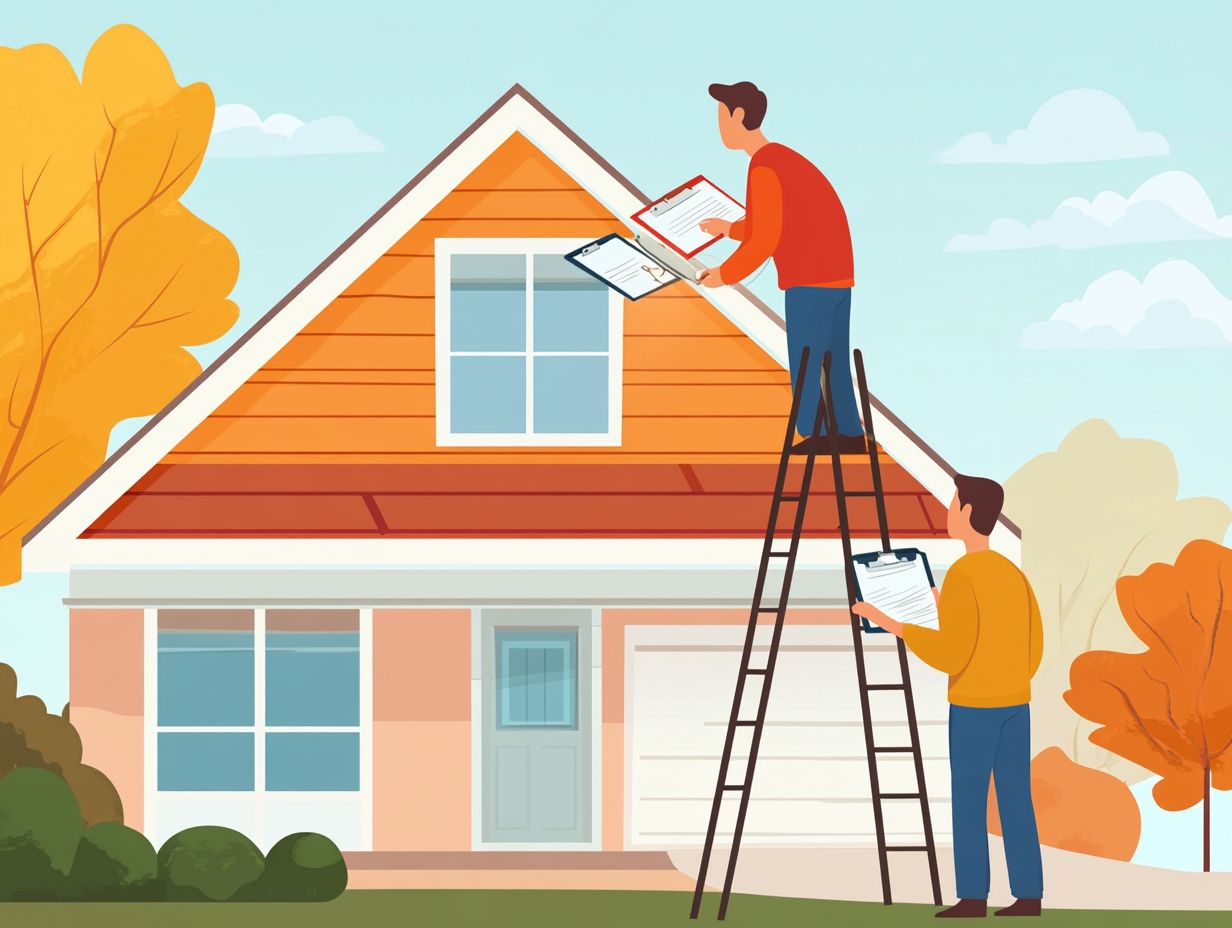
Negotiating with buyers after a home inspection requires you to engage in a thoughtful discussion about the necessary repairs outlined in the inspection report. You’ll need to evaluate which issues to address and which ones you can leverage during negotiations.
Effective communication is key in this nuanced process. By adopting a collaborative approach, you re likely to achieve more favorable outcomes for both parties involved. It s essential to prioritize transparency about common repair issues, such as:
- Roofing concerns: Check for leaks or damage.
- Plumbing glitches: Look for drips or blockages.
- Electrical discrepancies: Ensure all outlets and wires are safe.
This ensures that potential buyers feel both heard and informed. By concentrating on what requires immediate attention versus what can wait, you can strategically position yourself in the negotiation. Utilizing tactics like offering repair credits or committing to specific fixes can build trust and encourage buyers to appreciate the property s value beyond its imperfections.
Finalizing the Sale After the Inspection
Finalizing the sale after a home inspection is a pivotal moment in the real estate journey. This is an exciting time! Here, the inspection findings play a crucial role, shaping not only your offer but also guiding how adeptly you navigate the inspection contingency within the contract.
Closing the Deal and Moving Forward
Closing the deal on a home sale formalizes the buyer’s offer and incorporates insights from the inspection process. These insights can greatly impact home value and current market conditions.
At this crucial stage, you ll navigate a sea of paperwork, including the purchase agreement and disclosure statements. It s also time to finalize negotiations regarding any repairs identified during the inspection.
Depending on the inspection outcome, the buyer might request price reductions or repairs, which can shift the transaction dynamics. Handle these discussions carefully. Resolving issues can make or break the sale and significantly influence the buyer s confidence in their investment.
Watch this video to understand the home inspection process better.
Frequently Asked Questions
What is the purpose of a home inspection for sellers?
Home inspections help sellers identify potential issues or repairs that could affect the sale. For a smoother process, it’s crucial to grasp understanding the home inspection timeline, as addressing these issues beforehand can increase the home’s value.
When should sellers schedule a home inspection?

Sellers should schedule a home inspection as soon as they decide to put their home on the market. This gives them enough time to address any issues and ensures a smoother selling process, as outlined in understanding the home inspection process.
Who pays for the home inspection in the selling process?
Typically, the seller pays for the home inspection. However, the buyer may cover the cost as part of their due diligence before purchasing the property.
What should sellers do to prepare for a home inspection?
Sellers should declutter their home, ensure all utilities are on, and provide easy access to all areas, including the attic and crawl space. They should also gather any documentation for recent repairs or renovations.
Can sellers be present during the home inspection?
Sellers can choose to be present during the home inspection. This can be helpful if the inspector has questions or if the seller wants to address concerns directly.
What happens if the home inspection reveals issues?
If the home inspection reveals issues, the seller can address them before putting the home on the market or disclose them to potential buyers. To better navigate this process, understanding the home inspection report can be crucial. In some cases, the buyer may request specific repairs or ask for a credit towards the sale price to cover repair costs.
Home inspections can be tricky; here’s what to expect! Ready to sell your home? Contact us today!

